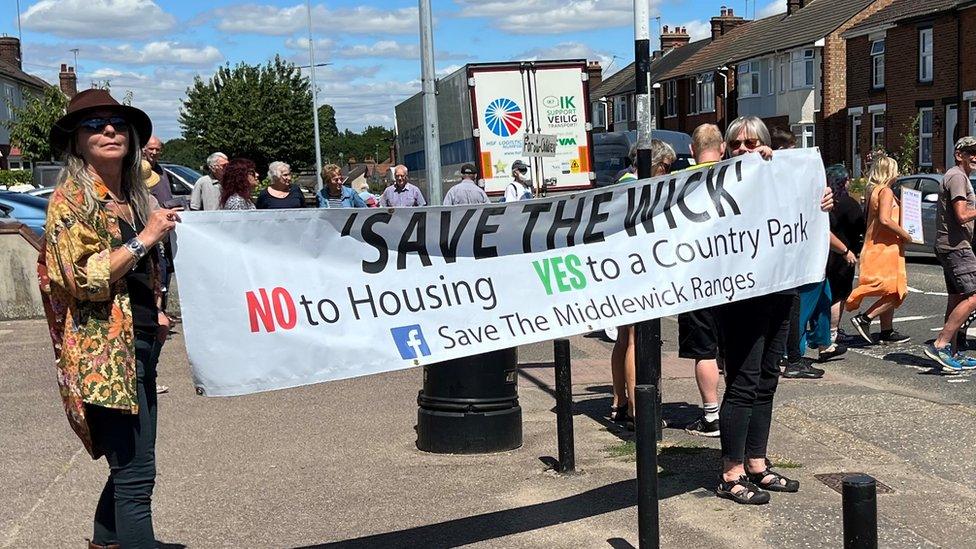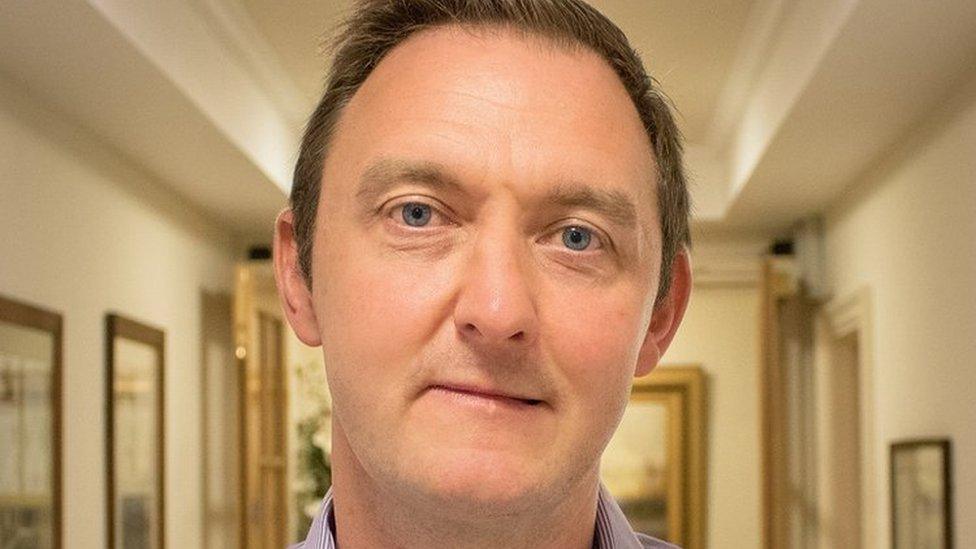Colchester: Local Plan approved despite MoD land concerns
- Published

Protesters blocked a Colchester road on 4 July to oppose plans for up to 1,000 homes on the Middlewick Ranges
A council claims it will have "greater control" over housing developments after its plan for thousands of new homes was approved.
The new local plan outlines where in the borough 14,720 homes could be built by 2033.
Campaigners objected as 1,000 properties could be sited on the Ministry of Defence-owned Middlewick Ranges.
The council said more sustainable development would now be possible.
About 40 people repeatedly crossed a busy road ahead of the vote on on 4 July to protest against the proposal for the ranges.
The ranges are no longer used for live firing but support significant wildlife populations. Opponents claim the area cannot sustain more housing.
Inspectors considered nearly 1,200 comments in the latest consultation, and earlier submissions, before coming to their conclusions.
The council said its adoption of the local plan would protect land, stop "speculative development" and help to securing more affordable housing.
Martin Goss, chairman of the local planning committee, said: "Its adoption means decision making stays in our hands, not with the government or developers.
"Not only will it give the council greater opportunities to influence and control development, but it will also it be much easier to refuse applications that do not comply with local policies, and we are more likely to be successful at appeal."

Martin Goss, in charge of planning at Colchester Borough Council, said the plan would help to stop "speculative development'
David King, council leader, said: "We can all agree on wanting better development and controlling what development is delivered over the coming years, with least harm and most benefit environmentally."
The council is legally obliged to have a local plan, shaping the development of homes, businesses, and infrastructure for coming decades.
In a statement the council said it was still committed to listening to public opinion.

Find BBC News: East of England on Facebook, external, Instagram, external and Twitter, external. If you have a story suggestion email eastofenglandnews@bbc.co.uk